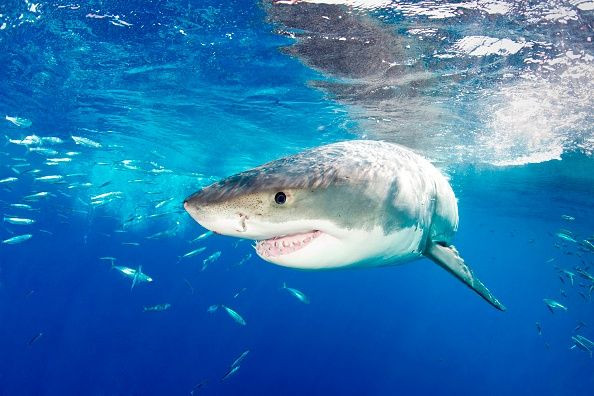Record Shark Attacks Around The World: Australia, North Carolina Beach Tourism Battle Deadly Sea Creatures

A slew of recent shark attacks in Australia have put the ocean’s deadliest creature back into focus. While shark attacks are generally rare, several attacks in recent months reported from Australia to North Carolina have stirred up fears among some ocean-goers.
On Monday, a 36-year-old surfer was bitten on the leg near Byron Bay, a popular tourist destination in Australia renowned for its beaches. The surfer had been lying on his board when the shark attacked, leaving several small puncture wounds on his leg. His fiberglass surfboard took the brunt of the bite, according to witnesses.
It was the 13th shark attack in the area since January 2015. Last month, 17-year-old Cooper Allen was bitten in the thigh by a 13-foot shark while surfing off nearby Lighthouse beach. He received stitches but his injuries were not life-threatening. In February 2015, Japanese surfer Tadashi Nakahara was killed by a great white shark while surfing in Ballina.
With attacks on the rise, New South Wales Minister for Primary Industries Niall Blair announced a plan Monday afternoon to install shark nets in the water. The bill would be introduced to parliament later this year to legalize a six-month trial of traditional shark nets on the north coast.
“We know that the north coast community is suffering after an extraordinary run of shark attacks – that is why we have today announced that we will introduce legislation to the NSW parliament, to get the nets in the water as soon as possible,” Blair said in a statement.
Australia has seen a decline in tourism because of the shark attacks, according to a report released by hotel comparison site Trivago in March 2015. Places associated with shark sightings, beach closures and attacks saw an up to 30 percent decline in searches, the report found. New South Wales’ South Coast and Illawarra regions were the most affected, although downturns were also noted for Busselton in Western Australia, and New South Wales’ north coast, where the most recent attack occurred.
Australia has the most attacks per year, but shark attacks are on the rise globally. In 2015, 98 unprovoked shark attacks occurred around the world, beating the previous record of 88 set in 2000. At least six of the attacks were fatal and many happened around holiday hotspots in Australia.
In the United States, 2015 had the most shark attacks in recorded history. North Carolina saw a record number of attacks, with a total of 12 reported attacks, compared with a normal average of four to six for the region in an entire year. No fatalities were reported.
Tourism in North Carolina wasn't immediately hit by the shark attacks, said Lee Nettles, executive director of the Outer Banks Visitors' Bureau. Nettles told NBC News in July 2015 his office had seen an increased number of concerned calls from visitors, but that people weren't canceling their trips.
© Copyright IBTimes 2025. All rights reserved.






















